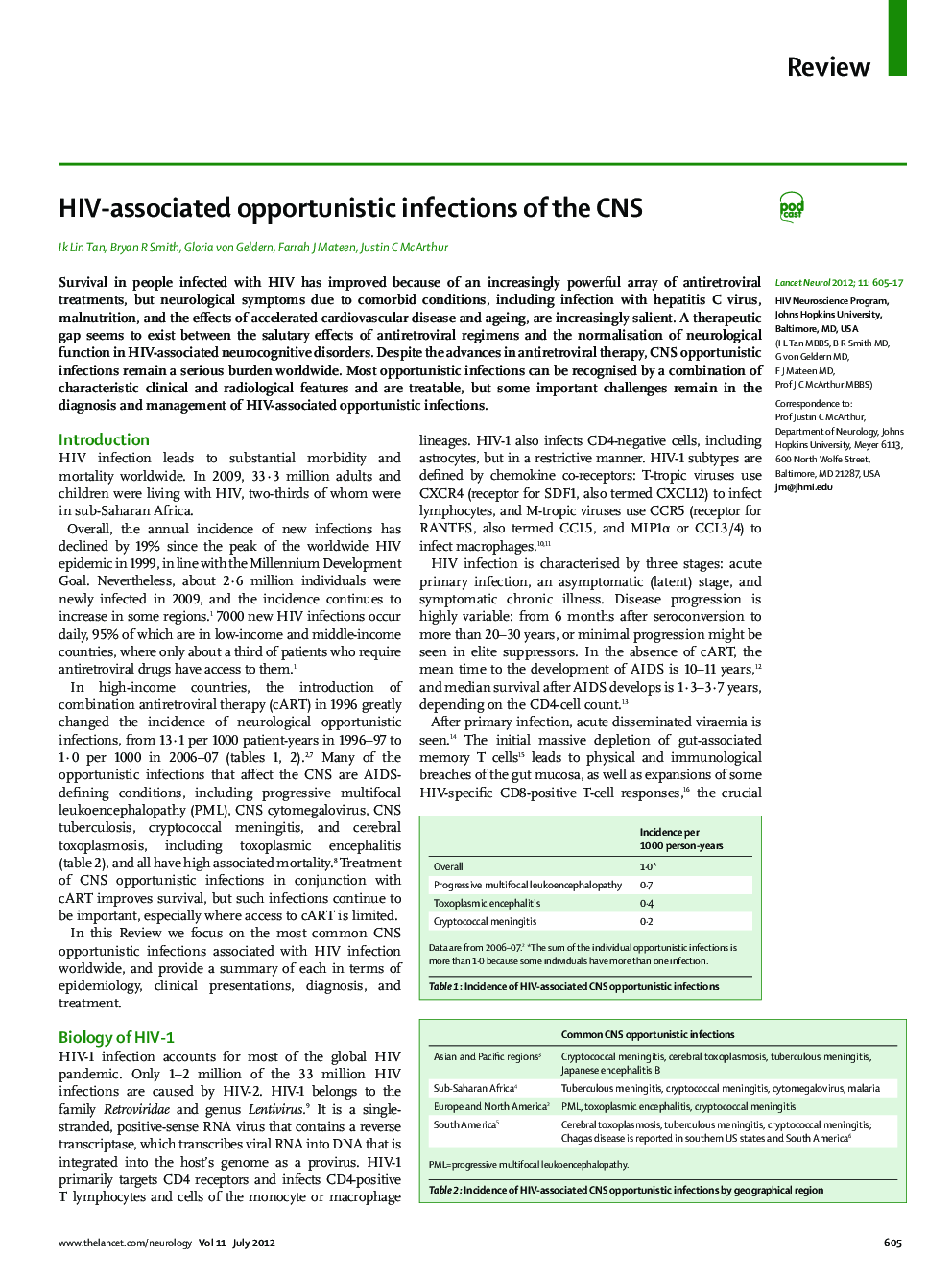| کد مقاله | کد نشریه | سال انتشار | مقاله انگلیسی | نسخه تمام متن |
|---|---|---|---|---|
| 3066989 | 1188125 | 2012 | 13 صفحه PDF | دانلود رایگان |

SummarySurvival in people infected with HIV has improved because of an increasingly powerful array of antiretroviral treatments, but neurological symptoms due to comorbid conditions, including infection with hepatitis C virus, malnutrition, and the effects of accelerated cardiovascular disease and ageing, are increasingly salient. A therapeutic gap seems to exist between the salutary effects of antiretroviral regimens and the normalisation of neurological function in HIV-associated neurocognitive disorders. Despite the advances in antiretroviral therapy, CNS opportunistic infections remain a serious burden worldwide. Most opportunistic infections can be recognised by a combination of characteristic clinical and radiological features and are treatable, but some important challenges remain in the diagnosis and management of HIV-associated opportunistic infections.
Journal: - Volume 11, Issue 7, July 2012, Pages 605–617